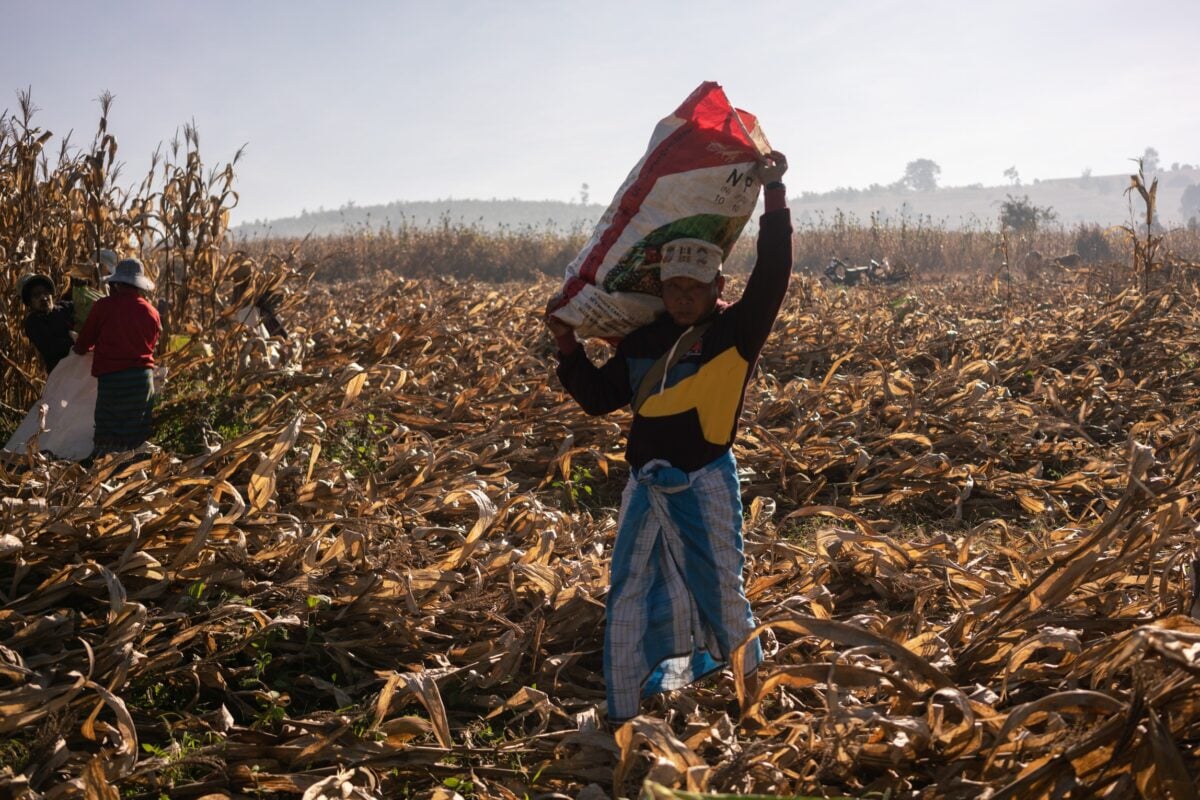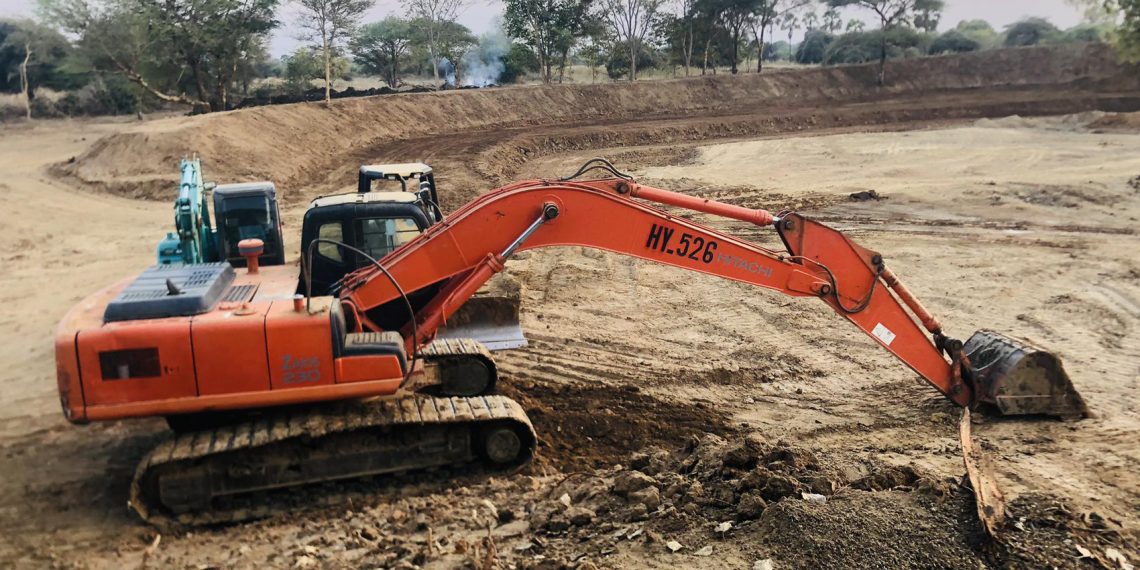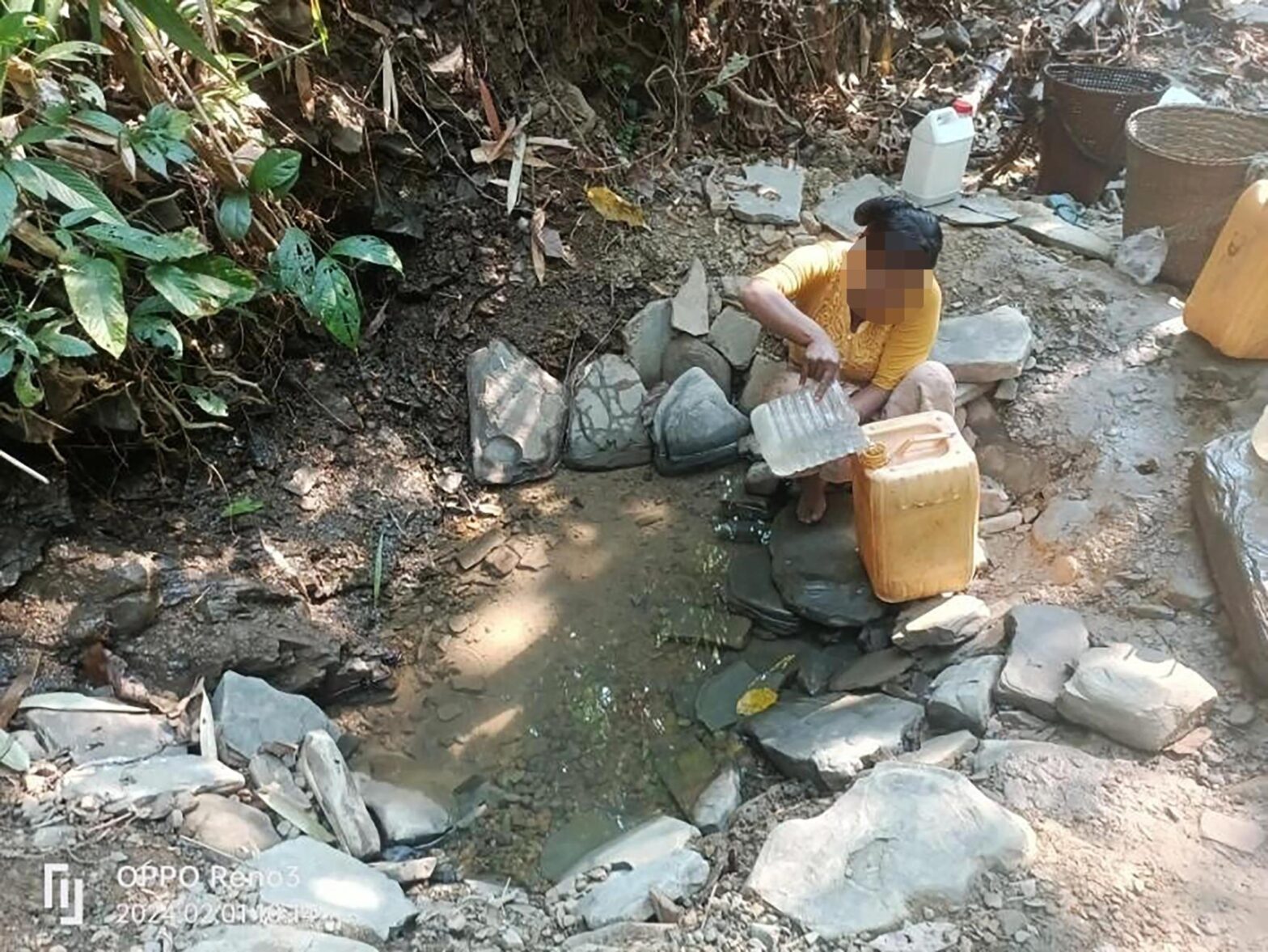SHAN STATE, MYANMAR – Efforts are being made to end the burning of agricultural fields in Myanmar, one of the sources of transboundary haze in the Mekong region. However, the country’s economic woes have forced farmers to continue relying on low-cost and unsustainable farming practices.
Aung Thein*, a maize farmer from Than Te village in the southern part of Shan State, recalled when maize plantations – also known as corn – only made up a tiny part of his farming area in 2019.
However, the crop’s popularity soon grew, expanding from 28 to nearly 810 hectares over the next five years.
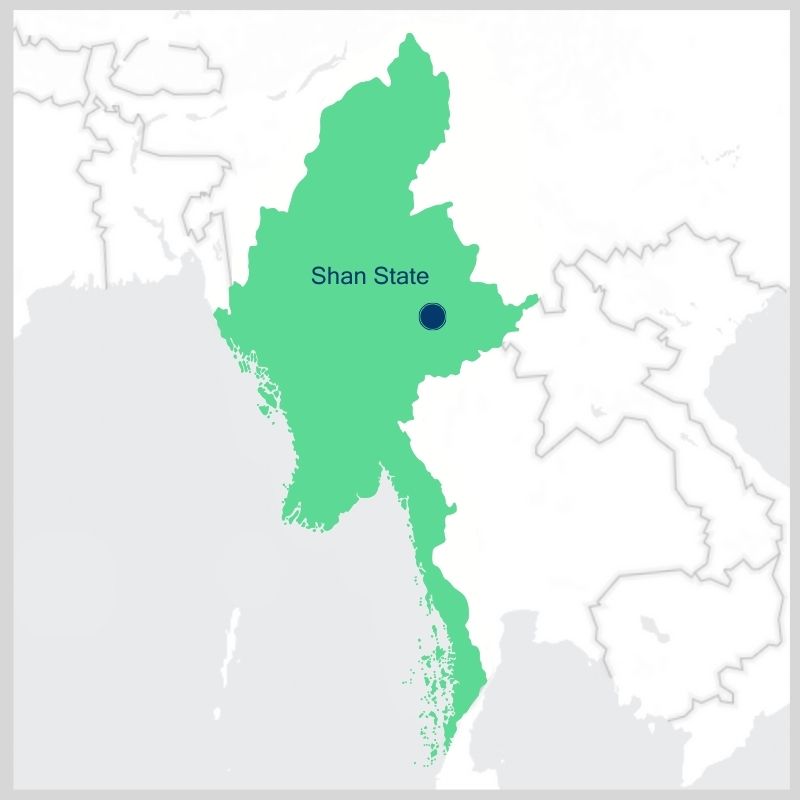
Farmers in about 70 villages shifted to maize, a big increase from the 19 villages where it had previously been grown. Now more than 5,000 farmers are involved in the sector.
The sharp rise in maize plantations was because of a push by Thai companies and local authorities to promote the crop in Shan State.
Thailand requires 8.9 million tons of maize per year, but it can only produce half that much, according to data from Thailand’s Ministry of Commerce. Thailand now imports about 1.6 million tons of maize from neighboring countries annually. Between 600,000 and 700,000 tons come from Myanmar.
Maize is mainly used for producing animal feed, of which demand has increased dramatically due to the rising popularity of meat in Thailand and across Southeast Asia.
But this surging demand has come with downsides, such as deforestation and field burning – a common farming practice used to clear residue after harvests in the Mekong region, and one which has caused the unhealthy transboundary haze.
Greenpeace analyzed satellite maps and found that more than 470,000 hectares of forests in Shan State had been converted into maize plantations. It also highlighted that one by three of the hotspots, indicating burning, were detected in the maize plantation area. Other hotspots were in forests.
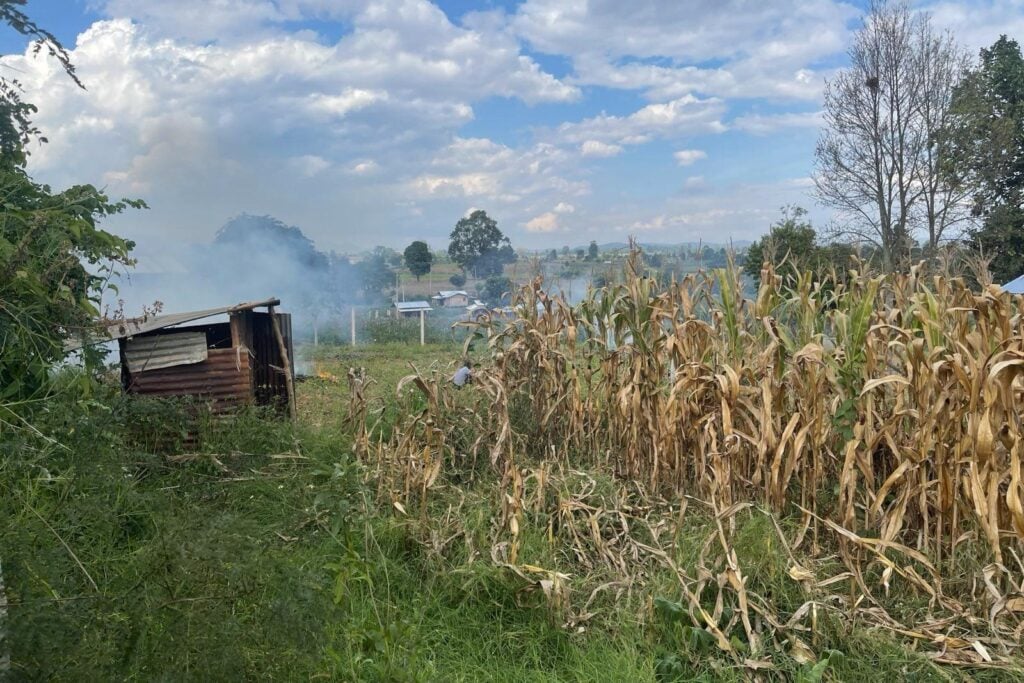
Efforts have been made by the Thai government and agro companies to reduce fires in neighboring countries, as companies’ rising demands for maize have been blamed for the increase in widespread burning.
Some of the initiatives aimed at cutting back the burning included the implementation of the Feed Ingredient Trading Business Group in Myanmar by Thai agro conglomerate Charoen Pokphand (or CP Group), which established a traceability system that verified the origin of harvested maize.
The Thai government recently approved a ban on maize imports from areas where farmers burn off their fields.
However, Myanmar’s ongoing political and economic challenges have not created the right circumstances for farmers to stop burning, despite their awareness of its impacts on health and the environment.
Rising production costs
Myanmar General Min Aung Hlaing staged a military coup in 2021 which started a civil war across Myanmar, including in Shan State where nearly 100,000 people have been displaced after clashes between the military and armed ethnic groups.
The international community responded to the conflict by sanctioning military-affiliated businesses and calling on private companies to exit the country. As a result, many activities relating to trade and commerce have been suspended and Myanmar has suffered a huge economic downturn.
Rising inflation has led to Myanmar’s currency, the Kyat, being devalued due to a shortage of foreign exchange – and put up the prices of agricultural production. Maize farmers have been heavily affected as their farming practices rely heavily on fertilizers.
The Irrawaddy also reported that traders and exporters of agricultural products, including maize, have lost profits in the border trade with Thailand due to the junta’s frequent change of policies.
These include various tariffs charged at checkpoints along the transportation routes, where goods have also been seized by authorities. Rising fuel prices add to the costs.
“The military set up many checkpoints along the routes. I had to pay between 3,000 and 4,000 Kyat (about US$14 to $24) to pass through each checkpoint,” said maize farmer Aung Thein.
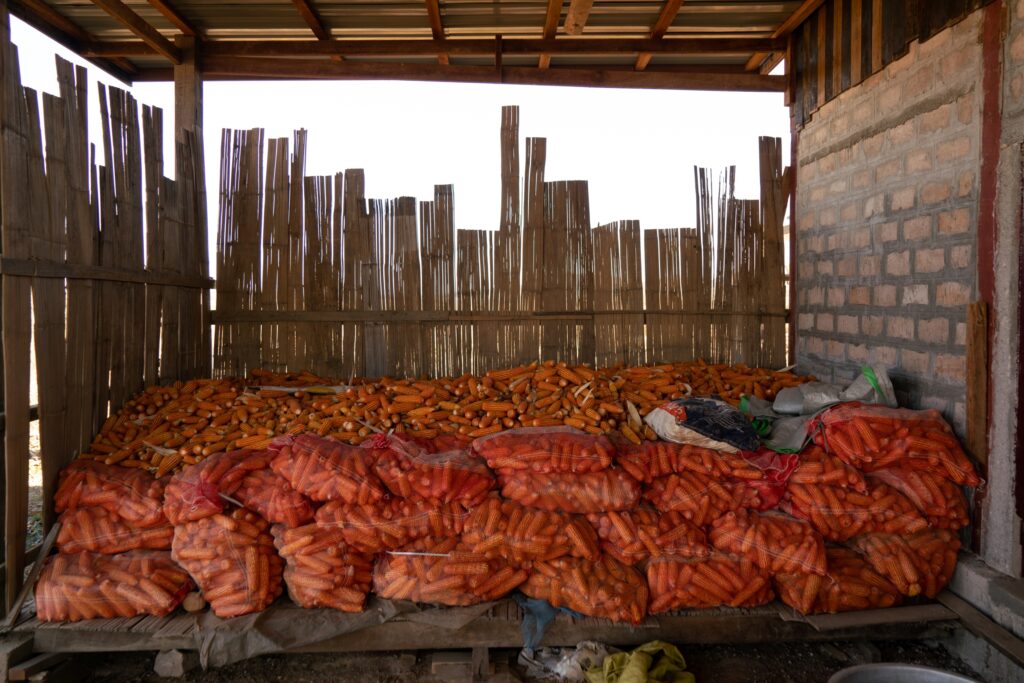
The uncertainty in maize trading has led Thai buyers to offer lower prices or cancel or reduce their orders.
As transportation costs double, an anonymous farmer from Hopong Township said buyers do not take as much as they used to, forcing farmers to sell their maize by weight, which reduces their profits.
The ongoing El Nino, expected to continue until at least June, has resulted in a heatwave and drought that has also hit maize production in Southeast Asia.
This overall situation has forced many farmers in Shan State to cut costs, including by burning off their fields – the cheapest option after harvest and the only viable option in these difficult times.
Debts fuel fires
Rising debt is a common challenge for maize farmers in southern Shan State, as many of them signed up for contract farming that provides them with a means of production. They must pay back the money after harvesting.
Tun Kyaw*, a maize farmer at Ti Git village in Taunggyi township, described how representatives from an agro company visited his village every February to push local farmers to sign contracts. They receive seeds and fertilizer by April, grow the crops from August to December, and harvest them early the following year.
The company has no specific market requirements for local farmers, explained Tun Kyaw, except that they must pay deposits for the cost of resources received before crop cultivation.
If the payment isn’t made, farmers will be charged interest – starting the debt cycle that prompts many farmers to cut production costs, often associated with field burning.
The Myanmar Corn Industrial Association has offered a production financing program to farmers with the support of private banks and traders. Private banks provide farmers with loans at a 12% rate and traders promise to buy maize after harvest, according to the United States Department of Agriculture’s report released in April last year.
The same report points out that almost all corn seeds cultivated in Myanmar are largely imported from Thailand. Major suppliers in the corn seed market are Thailand’s Charoen Pokphand (or CP Group) and Myanmar’s Myama Awba Group, Aventine Limited and Seven Tiger Group.
CP and Myama Awba Group cover about 85% of the corn seed market share.
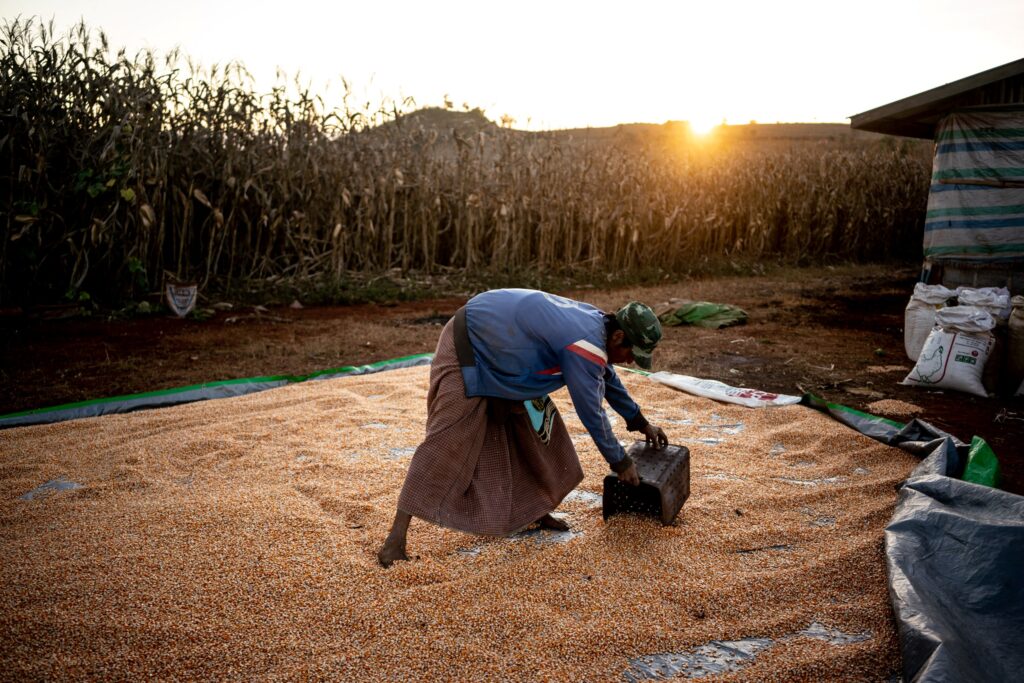
As an alternative, local microfinance firms play a major role in offering financial resources to farmers to improve their livelihoods.
One of those is Maha Agricultural Microfinance, co-owned by the Myanma Awba Group and the International Finance Corporation, which has partnered with companies and banks to support local farmers in Myanmar. Its partners include one of the country’s largest commercial banks, Yoma Bank.
Yoma Bank has been criticized by human rights activists for its provision of banking services to Telecom International Myanmar Company Limited, the operator of the Myanmar military’s Mytel mobile network, which is accused of helping military leaders’ surveillance of troops and the public.
Improve traceability system
Since 2020, CP Group has implemented the Feed Ingredient Trading Business Group (FIT) in Myanmar, through its subsidiary CP Myanmar. Maize growers who supply crops to the company must register and verify their plantation area through documentation and GPS tracking.
This allows the company to purchase crops grown in plantations that do not encroach on forest areas or are associated with burning. The system has also been deployed in Thailand, Laos and Vietnam, where CP Group buys products from farmers.
Aung Thein, a maize farmer from Than Te village, said that farming experts from Thailand arrived in southern Shan State to offer farmers training for sustainable farming practices, including producing quality maize without burning off their fields.
“We do not burn the maize residue because it leads to declining soil quality. All the good microbacteria will be dead,” he said.
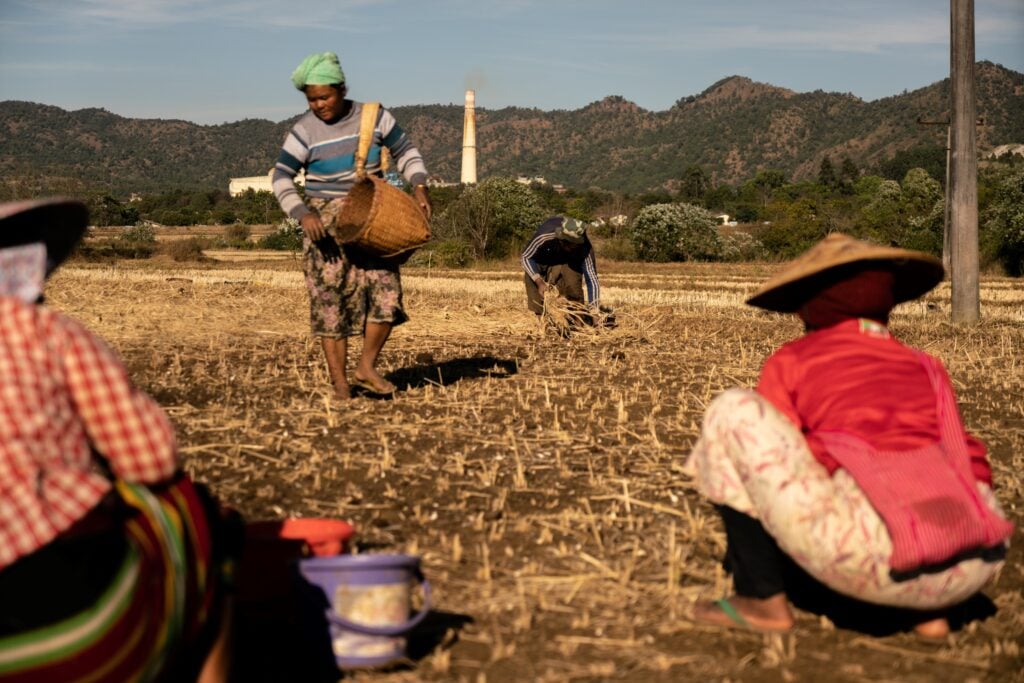
However, some farmers in southern Shan State said there is room for improvement for agro-businesses to be involved with farmers and communities.
Tun Kyaw, a farmer from Ti Git village, found between four and six people handling the crop verification project in his area, which is not enough to encourage every farmer to participate.
He suggested the project implementor improve consultation channels, which allow local farmers to access information relating to the traceability system and sustainable farming methods.
Nang Hla*, an activist based in Than Te village, said many farmers in her area were unaware of the traceability system. She found some buyers still do not ask farmers to verify the origin of their crops.
“Contract farming usually does not cover the expenses in the post-harvesting process such as decomposing and recycling of crop residue,” she added, suggesting the need to support farmers from the beginning to the end of crop cycles.
This story was produced with the support of the Thai-Myanmar Media Fellowship 2023, run by Visual Rebellion Myanmar and the Spirit in Education Movement.


